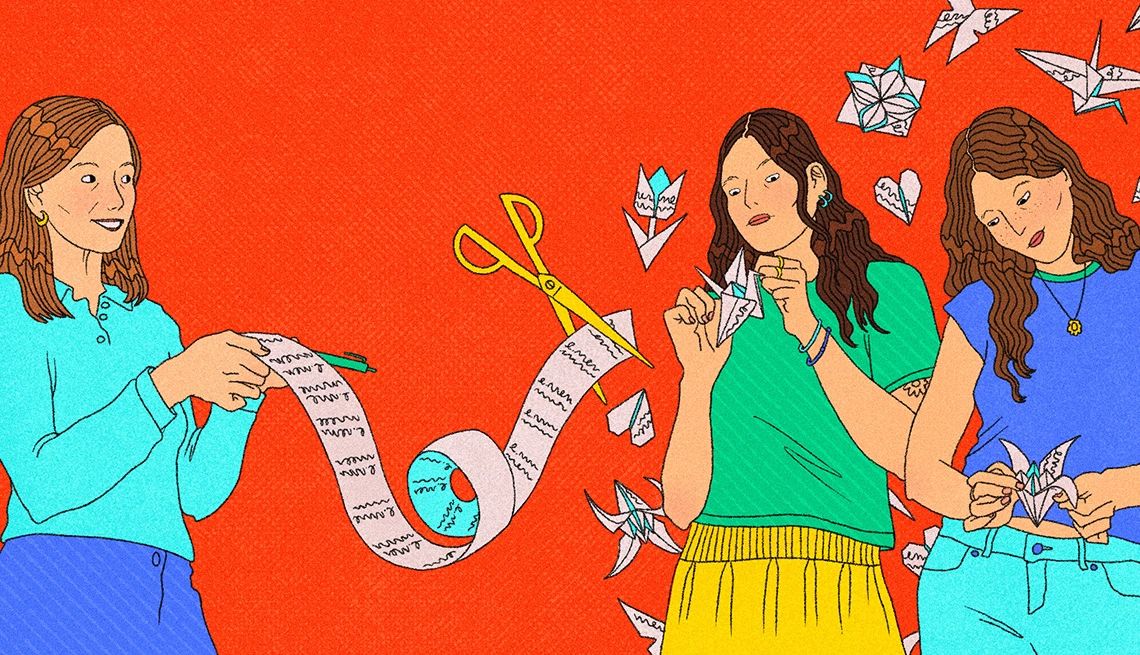AARP Hearing Center


Springtime is graduation time, and for parents like me, the season is often a time of reflection about our children. Have we taught them everything they need to know? And what have they taught us?
For years, I’ve been collecting my “secrets of adulthood,” the lessons I’ve learned with time and experience — usually the hard way — about how to navigate the perplexities of adult life. In fact, I paired my own personal experiences with my happiness studies for my newest book, Secrets of Adulthood: Simple Truths for Our Complex Lives.
I often repeat these “secrets” to myself because I remind myself of the same principles over and over. I learn them once, but before long, I have to learn them all over again: “Working is one of the most dangerous forms of procrastination.” “What we do every day matters more than what we do once in a while.” “A strong voice repels as well as attracts.”
In particular, I’ve learned many secrets of adulthood from my time as a parent. No change has transformed me more than becoming a parent, and no experience has taught me more lessons.
For instance, as the parent of two young adult daughters, I repeat to myself, “At some point, a parent must shift from coach to cheerleader.” I passed that point a few years ago! I remind myself of this secret whenever I have the urge to lecture, inform, nudge or suggest (which is often). These days I’m a cheerleader, not a coach; my proper role is to shout encouragement from the sidelines, not to direct the action.
My daughters were relieved when I figured out this secret of adulthood: “No tool fits every hand.” In the past, I’d prod my daughters to work at their desks instead of on their beds. I’d tell them to work in silence instead of having music playing. I’d suggest that they do high-intensity weight training, instead of Pilates or boxing, because it’s a more efficient form of exercise. But finally I understood that desks, silence and weight training are tools that work very well for me. No tool fits every hand, and different approaches work better for my daughters.
There’s another secret of adulthood for parents — and for anyone, really — that puzzled me for a long time. I couldn’t figure it out: I loved my daughters with all my heart, and I accepted them just as they were, so why did I so often nudge or encourage them to change?
Finally, I grasped a paradox that exists at the heart of parenthood: “Love is unconditional, and love is demanding.” I can say to my daughters, “You’re the best!” and I can also say, “You can do better.” Both sides of the paradox are true expressions of my boundless love for them.
I have to admit that as a parent, I repeated my secrets of adulthood to my daughters many times (too many times?). In fact, I’ve been called a “happiness bully” because when I have a suggestion for how I think someone could make their life happier, I can be quite insistent.




































































You Might Also Like
Gretchen Rubin: An Empty Nest Can Create a Fuller Life
New chapter brings freedom and possibility
Mel Robbins on the Power of 'Let Them'
The bestselling author talks to AARP about finding happiness by ceding control
Melinda French Gates Discusses Her New Memoir
She talks to AARP about Life, Love and ‘The Next Day’